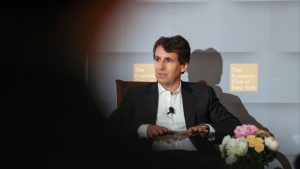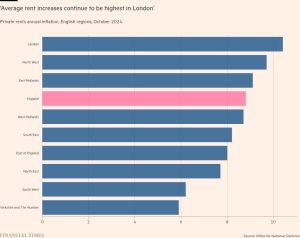Over Work — have our jobs become too greedy for our time?
Unlock the Editor’s Digest for free
Roula Khalaf, Editor of the FT, selects her favourite stories in this weekly newsletter.
Elon Musk claims to work up to 120 hours a week and expects such devotion from his staff, too — once calling remote work “morally wrong”. Fans take such Stakhanovitism as proof that grit and determination yield results, including billions of dollars. Detractors see it as counterproductive machismo.
Brigid Schulte, a director at New America, a progressive think-tank, is in this latter camp. In Over Work, the former Washington Post reporter explores how long hours have taken over the US so that overwork has “become a fact of life”.
We are at an inflection point. Employees have increased flexibility, including location and asynchronous work, after lockdowns. Campaigns for a four-day week are gathering momentum as experiments with shorter hours are run in companies worldwide, albeit typically in ones with small workforces. Yet there has also been a desire to restore the pre-pandemic order, notably in mandates to return to the office, including by Goldman Sachs and Boots. Recently, Amazon’s chief executive Andy Jassy demanded staff come back five days a week: “Before the pandemic, it was not a given that folks could work remotely two days a week, and that will also be true moving forward.”
Schulte wants to overhaul working patterns. “We are limited only by the horizon of our imaginations and the stories we tell ourselves about the way things ought to be. Because work has not been working for far too many people for far too long.”
Some argue that “workism” — the devotion to our jobs — fills the void religion leaves. Or that it confers status, with long hours a badge of importance. Schulte is more pragmatic, arguing that at a time of lay-offs in media and tech sectors and the spread of artificial intelligence and robotics, it is more likely a “fear to survive in what’s become an unforgiving world of paid work”. That will be familiar to the many workers in service and hospitality who are at the whims of algorithmic management that does not care about their lives outside work. Schulte observes that “when last-minute schedule changes and surprise shifts [are] dropped, more stable hours reduced work-family conflict and stress”.
When so much output is vague in white-collar work, overwork is about performance rather than productivity. So much, writes Schulte, is wasteful. “There’s the ‘real’ work — the tasks and outcomes that create value for the organisation and give employees a sense of meaning and pride. There’s the ‘work around the work’ — all the emails and meetings, some necessary, many not, that can consume entire days. And then there’s the ‘performance of work’: sending late-night emails or Slack messages . . . giving the appearance of super-productive busyness when you’re really wrapped up in low-value tasks or focusing on email.”
Schulte meets a variety of people who have grappled with their hours. The lawyer whose stress levels had pushed her perilously close to a heart attack; shift workers whose schedules are erratic and make organising their personal lives nearly impossible. Schulte travels to Japan to meet the mother of Mina Mori, a tragic emblem of karoshi — the Japanese term for death from overwork. There she meets a young worker who made blank photocopies at 11pm in order to look busy, waiting for his manager to go home. The juxtaposition of these stories reinforces the waste of such work regimes.
It also forces the author to examine her own habit of overworking, putting off family events to do low-value stories. Signing up to Workaholics Anonymous and taking a 20-question quiz, she is told three points would indicate a problem. She scores 13.
This blend of personal inquiry and interviewing business leaders, workers and experts is the approach she took in her excellent first book, Overwhelmed. That felt fresher than this latest one, which covers similar territory to management thinker Jeffrey Pfeffer and economist Claudia Goldin, who has written about greedy jobs.

Nonetheless, Over Work is a great introduction to the gnarly problems of work and policies to tackle them. Among these are “agents of change”, experiments with scheduling shifts, removing unpredictability for low-wage workers, and encouraging people to take holidays. She highlights the work of Peter Cappelli, a Wharton business professor, who wants to change the financial accounting system so that staff are seen as assets rather than liabilities — adding to value rather than subtracting.
Ultimately, she acknowledges: “It’s easier for policymakers to look the other way and avoid confronting the powerful businesses and business leaders . . . And it’s easier for exhausted, often isolated workers, worried about paying their bills and proving their worth, to resign themselves to thinking that this is just the way it is and go back to work.”
Over Work: Transforming the Daily Grind in the Quest for a Better Life by Brigid Schulte Henry Holt, $31.99, 384 pages
Emma Jacobs is the FT’s work & careers writer
#Work #jobs #greedy #time







